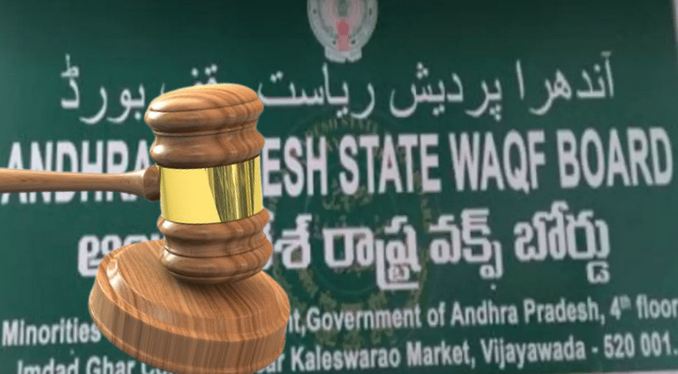The Supreme Court of India has given a big jolt to the Waqf Board with a clear directive that the religious institution is part of the “state” under Article 12. As per the order by the apex court, land dedicated for religious purposes is not immune from vesting with the state.
In the State of Andhra Pradesh vs AP State Wakf Board & Others, the Supreme Court of India held that a State government, as a juristic entity, can protect its property through the writ court, just as any individual could have.
Breaking: Big setback for Wakf
Supreme Court passed landmark judgment stating that actions of Wakf Board could be challenged under Writ.
Andhra Pradesh(Now Telangana)-
2006:Wakf Board declared 1654 acres & 32 guntas as wakf property
2006: State filed Writ in AP High Court
+
— Shashank Shekhar Jha (@shashank_ssj) February 8, 2022
Sunni Waqf Board and Shia Waqf Boards across the country hold properties worth lakhs of crore rupees. While most of the Hindu religious institutions remain under state control, the religious minority institutions like Waqf Board and Christian seminaries are free as administrative and financial units.
This landmark judgment will ensure that at least Hindu and Muslim religious institutions get the same treatment from the state. Later this judgment may be interpreted/extended for the takeover of properties held by Christian institutions.
The state of Andhra Pradesh vs Waqf Board went on for almost 16 years (since 2006) with many twists and turns. Finally, the Supreme Court on Monday ruled that 1,654 acres of prime land in the upmarket tech-city area of Hyderabad – Manikonda Jagir village – belonged to the state and not the waqf board.
In many other states like West Bengal, Karnataka, Uttar Pradesh, the Waqf board has properties worth thousands of crore rupees under its control, and with this judgment, the hold of Maulanas over these properties is under threat. In Karnataka, the Shia Waqf Board properties are valued at around Rs. 688 crore, while those of the Sunni Waqf Board are estimated to be a whopping Rs. 99,311 crore.
Despite the rising value of Waqf properties, in most states, neither the state government nor the Waqf bodies have prepared any list of the properties or, their current usage.
In February 2020, A Public Interest Litigation (PIL) before a division bench of the Supreme Court consisting of Justices D Y Chandrachud and K M Joseph, has brought the issue of non-enumeration of Waqf properties worth lakhs of crores of rupees into the limelight. Such non-enumeration has led to their misuse and illegal transfers to builders.
The petitioners have also disclosed that although Section 4 (1) of the said Act makes it obligatory for the states to appoint a ‘Survey Commissioner of Waqf’ and as many Additional Survey Commissioners as the government seems fit for the purpose, even this provision has remained a dead letter.
The Waqf Act had come into force in the year 2013 and Section 4 (1A) of the Act mandates every state government to maintain a list of Waqf properties after carrying out a Survey within one year of the Act coming into force.
Highlighting how the non-enumeration of Waqf properties was leading to hardships and murky transactions, the petitioners also alleged, “It has been reliably learned that proper records of waqf properties are not maintained by the boards and several such properties have been illegally transferred by waqf board officials who are acting in concert with builders/ developers by destroying and/ or fudging records.” The petition also claims that the value of the Waqf properties must be similar or maybe even higher in other states.”
In 2017, Minority Affairs Minister, Mukhtar Abbas Naqvi had also highlighted this issue and had said, “Ever since Wakf Boards have been set up, there has been an issue related to vacant properties being encroached upon by what I call Wakf mafia.”
This landmark judgment by the apex court will ensure that whenever the state government wants, it can take over the properties of the Waqf board. The ‘secular’ governments would continue to entertain the waqf mafia but many BJP led governments might decide to take over the properties of the waqf and end the corruption in the institutions.
